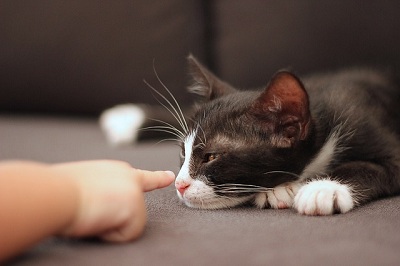How Does Having Cat Affect Child’s Intelligence?
How Does Having Cat Affect Child’s Intelligence?
According to many studies, having pets beneficially affects children in many ways. One American study shows that children who have cats or dogs have stronger immunity and are less prone to respiratory infections than children who do not. It also affects children in their physical development, because children with pets are more active and have better motor skills. Taking care of pets influence emotional intelligence and make children more responsible. It does not teach them to give them food on time only, but also to acquire a new set of skills necessary for a lifestyle. Namely, it teaches children about the regularity and consistency of good habits and hygiene. Children who spend a lot of time with their pets have better social and emotional skills. They are more empathic than their peers. They learn how their behavior impacts the behavior of others. Through this interaction, children have an opportunity to grow and learn how to connect with others and make a strong bond. Studies have also shown that kids who have pets are more self-confident and have better leadership skills. Pets unconditional love children and that sends them a message that they are wonderful and lovely beings. But how it reflects on their cognitive development. To find out more about the positive effects of pets and how having a cat affects a child’s intelligence, the article “Kids Who Grow up with Dogs and Cats Are More Emotionally Intelligent and Compassionate” gives us the following explanation.
How Does Having Cat Affect Child’s Intelligence?
Cognitive development: Kids with pets play with them, talk to them, and even read to them (that last activity is more common than you’d think), and the data backs up the idea that this additional low-stress communication benefits verbal development in the youngest kids. “Pet ownership might facilitate language acquisition and enhance verbal skills in children. This would occur as a result of the pet functioning both as a patient recipient of the young child’s babble and as an attractive verbal stimulus, eliciting communication from the child in the form of praise, orders, encouragement and punishment.”
Even though having a cat affects a child’s intelligence – cognitive, social, and emotional – parents need time to teach children how to handle their pets. Parents usually want responsible children, but teaching them responsibility and other useful skills take time. Children need parents’ support and encouragement in the process. Even children fail to feed a cat on time, fill a water bowl, or do not show interest in grooming her, parents should persist and coach them step by step. During the time, children will show progress and eventually get their most loyal friend. And this experience is priceless.










